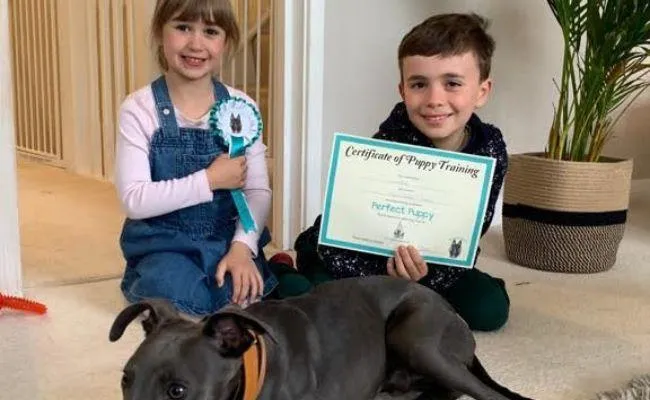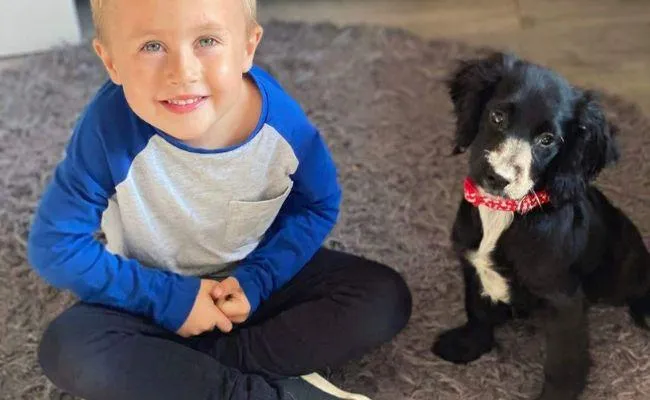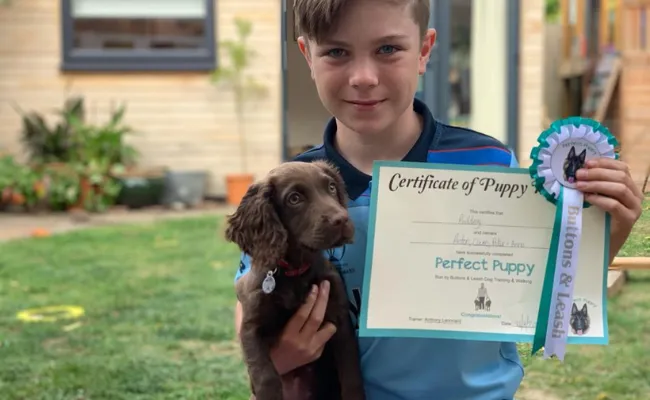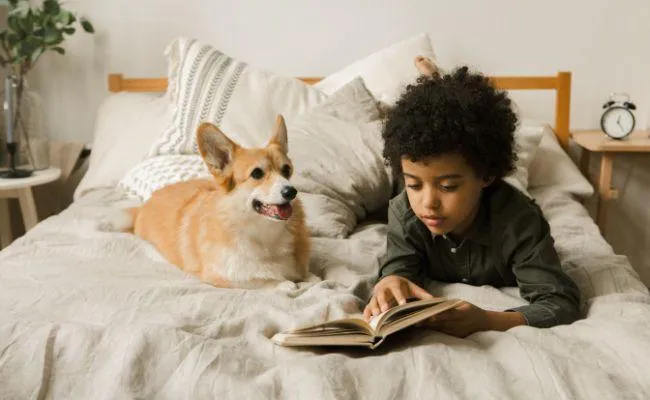Kids Around Dogs
Helping kids overcome their fear of dogs.
Kids Around Dogs
Helping kids overcome their fear of dogs.
Kids Around Dogs
KAD - Kids Around Dogs® is an award winning association of Dog Professionals and Child Care Professionals who specialise in working with families and schools to help children and dogs to live in harmony together.
As a child, I had a very scary experience with a neighbours dog that for years left me scared when around dogs. Thankfully, I managed to overcome this fear thanks to a friends dog. This experience showed me how difficult life can be when you are worried about dogs, particular when you are a child.
That is why I enrolled with Kids Around Dogs who offer a specifically designed program to help kids overcome their fear of dogs.






"Anthony is a great guy. Very calm and speaks the 'kids' language. He is very patient and takes all anxieties into consideration. Our child was petrified of being within meters of any dog. Anthony built her confidence by transferring his knowledge and confidence skills to her. Now she can pass a dog in the street without a second thought. She can visit family and friends with dogs and even have a snuggle with them!! Thank you so so much!! We are forever grateful!"
Liza
The Program
This program is designed to help kids overcome their fear of dogs.
This program consists of 8 x 20 - 30 minute training sessions. These can be a mixture of in-person and online. This is down to you and your kids preference.
The first 6 sessions, involve learning about dogs body language, how to approach them and how to safely interact with them. Age specific homework will be given to help with the program.
The final 2 sessions, will usually involve meeting a real-life dog, in this case it will be my dog Tywin.
Further sessions can be purchased if needed.
Kids Around Dogs Program Price
KAD
£200
8 Training Sessions
Payment plans available on all training programs
Kids Around Dogs Program Price
KAD
£200
8 Training Sessions
Payment plans available on all training programs
Kids & Dogs Advice

Avoid These Common Mistakes in Dog Training
Dog training is an essential aspect of raising a well-behaved and happy canine companion. Whether you're teaching your dog basic commands, housebreaking, or more advanced tricks, it's crucial to understand the principles of effective training. Unfortunately, many dog owners make common mistakes that can hinder their pet's progress and even harm their relationship with their furry friend. In this blog post, we'll explore three prevalent errors in dog training: using punishment, progressing too quickly, and not rewarding enough.
Mistake #1: Using Punishment
One of the most significant mistakes in dog training is relying too heavily on punishment. Punishment-based training methods, such as yelling, physical correction, or even shock collars, can be counterproductive and detrimental to your dog's well-being. Here's why:
Fear and anxiety: Punishing your dog can lead to fear and anxiety, which not only damages your dog's emotional well-being but can also cause aggression or avoidance behaviours.
Miscommunication: Dogs may not understand why they are being punished, making it difficult for them to connect their actions with the consequences. This can lead to confusion and fear instead of effective learning.
Trust issues: Using punishment can erode the trust and bond between you and your dog, making training more challenging and damaging your relationship.
Instead, opt for positive reinforcement training methods, which focus on rewarding desired behaviours and building a strong, positive relationship with your dog. Reward-based training is not only more effective but also promotes a healthier, happier dog.
Mistake #2: Progressing Too Quickly
Another common mistake in dog training is advancing too rapidly through training exercises and expecting your dog to learn quickly. Here's why this can be problematic:
Overwhelming your dog: Dogs, like humans, need time to learn and adapt. Pushing your dog too fast can lead to stress and frustration, making it less likely for them to grasp new concepts.
Incomplete learning: When you move too quickly through training, your dog may not fully understand the basics, which can lead to problems down the road as more complex commands are built upon these foundations.
Diminished motivation: If your dog constantly faces failure due to too-rapid progression, they might lose motivation and enthusiasm for training altogether.
To avoid this mistake, progress through training steps gradually, ensuring your dog has mastered one skill before moving on to the next. This approach will result in a well-rounded, confident, and enthusiastic learner.
Mistake #3: Not Rewarding Enough
Neglecting to reward your dog adequately during training is another common error. Rewards, such as treats, praise, and playtime, are essential for motivating your dog and reinforcing positive behaviour. Here's why not rewarding enough is problematic:
Lack of motivation: If your dog doesn't receive sufficient rewards, they may lose interest in training and become less responsive to your commands.
Missed opportunities: Failing to reward timely and consistently can cause your dog to miss the connection between their actions and the desired outcome.
Frustration: Your dog might get frustrated or confused when they don't receive positive feedback, hindering their progress and enjoyment of the training process.
To avoid this mistake, be generous with rewards. Use treats, praise, and affection to motivate your dog and reinforce good behaviour consistently. This will help create a positive and enjoyable learning experience for both you and your dog.
Conclusion
Effective dog training is essential for a happy and harmonious life with your four-legged friend. Avoiding common mistakes such as using punishment, progressing too quickly, and not rewarding enough can make the training process more enjoyable, efficient, and rewarding for both you and your dog. Embrace positive reinforcement, patience, and consistency to build a strong bond and help your dog become a well-behaved and joyful companion.

